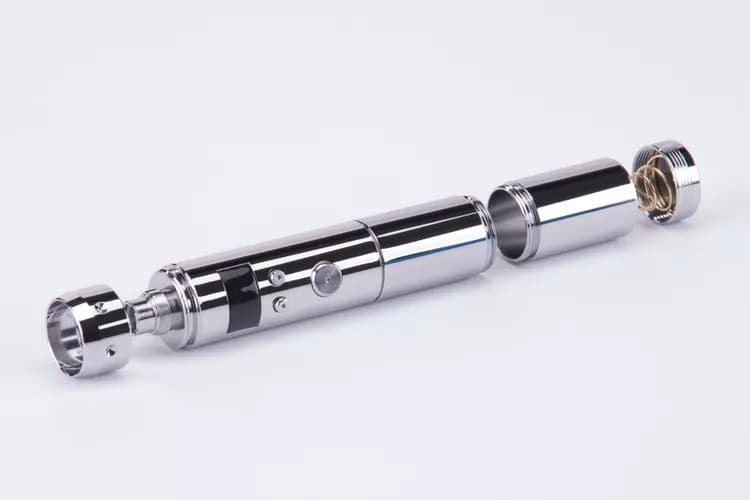
Patients Should Stop Using E-Cigarettes Before Plastic Surgery, Experts Conclude
Cigarette smokers are at increased risk of complications after plastic surgery. Could e-cigarette users face a similar risk? Evidence and recommendations related to e-cigarette use by plastic surgery patients are discussed in a special topic paper in the December issue of Plastic and Reconstructive Surgery®, the official medical journal of the American Society of Plastic Surgeons (ASPS).
"Refraining from [e-cigarette] use four weeks before surgery is a prudent course of action, despite the fact that it has yet to be determined if the effects are similar to traditional cigarettes," write ASPS Member Surgeons Dr. Peter Taub of Mount Sinai Medical Center and Dr. Alan Matarasso of Albert Einstein College of Medicine, both in New York City.
Potential Harms Lead to Advice to Stop E-Cig Use before Plastic Surgery
The researchers reviewed previous research on the potential health effects of e-cigarettes, with the goal of making recommendations for patients undergoing plastic and reconstructive surgery. Use of e-cigarettes -- sometimes called "vaping" -- has rapidly gained in popularity in recent years.
It has been suggested that e-cigarettes may be safer than traditional cigarettes, and might even be a useful "bridge" to smoking cessation. But there's also continued concern about the potential harmful health effects of e-cigarettes.
"The long-term effects of inhaling nicotine vapor are unclear, but there is no evidence to date that it causes cancer or heart disease as cigarette smoking does," Drs. Taub and Matarasso write. They note that the US Food and Drug Administration has published a "cautious blueprint" for the regulation of e-cigarettes.
The concern about e-cigarette use stems from the increased risk of complications after plastic surgery in cigarette smokers. Patients who smoke are more likely to have failure of the skin flaps used for many types of plastic and reconstructive surgery procedures. These skin flap complications are thought to be related to nicotine-induced reductions in blood flow (vasoconstriction).
Many "vapers" use e-cigarette solutions that contain nicotine, which might lead to similar adverse effects. The risk isn't necessarily the same, as cigarette smoke also contains other compounds that might affect blood flow. But there are also questions about other potentially toxic substances in e-cigarette vapor.
In one study of general surgery patients, quitting smoking for three or four weeks before surgery reduced the complication rate from about 40 to 20 percent. Based on this and other high-quality evidence, cigarette smokers are strongly advised to stop smoking at least four weeks before plastic surgery procedures.
A similar guideline should apply to the use of e-cigarettes before plastic surgery, Drs. Taub and Matarasso believe. They write: "Based on our current best knowledge, it seems reasonable to advise plastic surgery candidates to cease e-cigarette use in a manner similar to what is advised for [cigarettes]." Especially with the rising rate of e-cigarette use in the population, plastic surgeons should be aware of the possible increase in risk, and advise their patients accordingly.
Meanwhile, the authors acknowledge the lack of direct evidence showing that the nicotine in e-cigarette vapor increases the risk of blood flow-related complications. They conclude: "More definitive research might elucidate the effects of vaporized nicotine on the survival of skin and soft tissue flaps, as they most intimately relate to the safe practice of plastic surgery."
Materials provided by Wolters Kluwer Health: Lippincott Williams and Wilkins. Note: Content may be edited for style and length.
Disclaimer: DoveMed is not responsible for the adapted accuracy of news releases posted to DoveMed by contributing universities and institutions.
Primary Resource:
Taub, P. J., & Matarasso, A. (2016). E-Cigarettes and Potential Implications for Plastic Surgery. Plastic and Reconstructive Surgery, 138(6), 1059e-1066e. DOI: 10.1097/PRS.0000000000002742
Related Articles
Test Your Knowledge
Asked by users
Related Centers
Related Specialties
Related Physicians
Related Procedures
Related Resources
Join DoveHubs
and connect with fellow professionals

0 Comments
Please log in to post a comment.